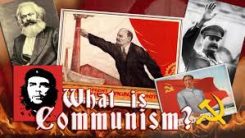Contents
- 1 What is Communism? An Overview of the Ideology
- 2 Key Principles of Communism: Equality, Ownership, and the State
- 3 The Historical Roots of Communism: From Marx to Modern Times
- 4 The Basic Differences between Capitalism and Communism
- 5 Communism in Practice: Criticisms, Successes and Failures!
- 6 The Legacy of Communism: Lessons and Generative AI Era!
It is very clear that if we examine world history, we see that it is also a history of conflicts. Throughout history, these struggles have sometimes decreased and sometimes increased to the point of causing world wars. In connection with this, those interested in international politics read the history of these struggles from different perspectives. For some, the world is a struggle of nations, for others, religions, and for others, a struggle of classes. In this context, when answering the question of what is communism, the answer to this question changes depending on the perspective from which you look at world political history.
Those who define themselves as communists believe that the world consists of a class struggle between capital and labour. They read the world in this way and want to move towards the goal of a classless society where the working class will dominate.
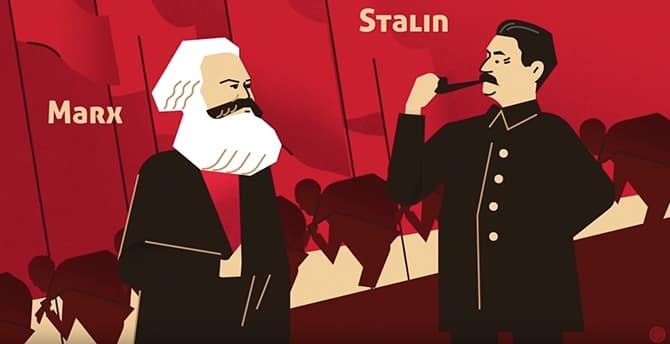
The jargon that sounds good, such as equality, a classless society, the absence of private property, and free health and education services, is the greatest argument of those who defend this system. On the other hand, when we look at its historical failures, there are some points where the group on the opposite side of communism is right. When we look at the past and present of communist regime countries such as the Soviet Union, China and Cuba, we see that they have not achieved what they promised. Over time, such governments have become authoritarian and have even produced leaders who oppress their people.
In this sense, according to some, the past experiences of this system have caused the death of approximately one hundred million people. In our analysis, we will also touch on the differences between communism and capitalism and try to give the views of both views.
What is Communism? An Overview of the Ideology
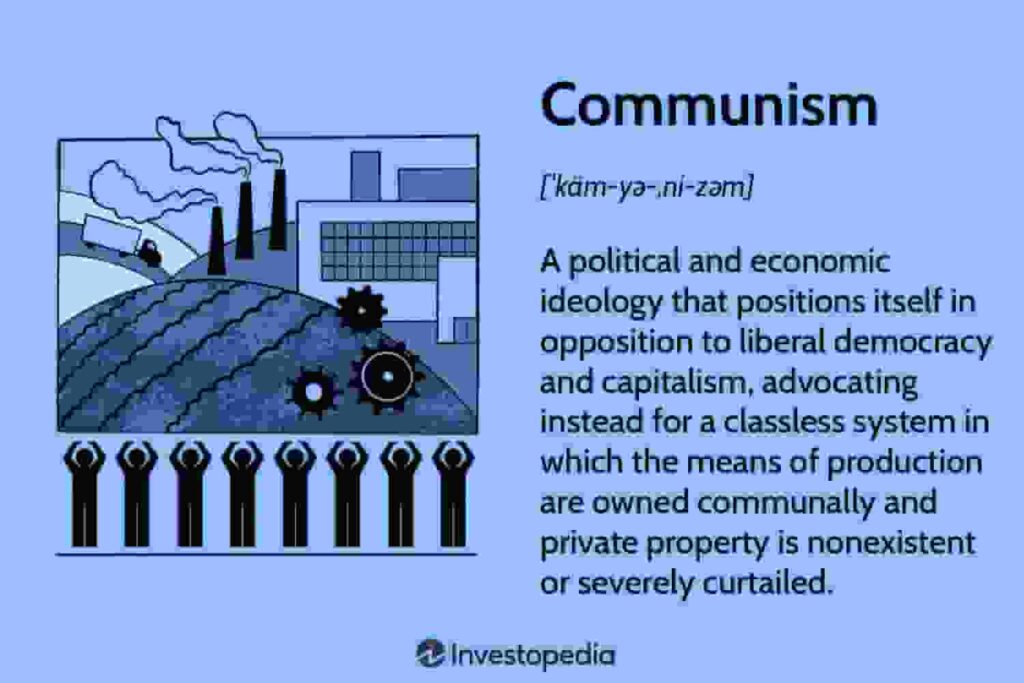
In its simplest sense, Communism is the name of the economic, social and political system in which the means of production belong to the state, not to private property. There is no money, state or class in this system. For example, in a country governed by a capitalist system, you want to produce a car. For this, you invest and establish your factory. Then, depending on the profitability, you either produce the parts or buy and assemble them and produce a car with your own brand.
However, in the communist system, the state will produce this vehicle at the end of the process it plans with workers it selects in a factory owned by itself. In this context, the entire process, including the parts of the vehicle, takes place in the planning of the state.
It is necessary to emphasize the ownership of the means of production right here.
The means of production are, in their simplest sense, as follows:
- Capital
- Labour
- Land
- Rent
- Entrepreneurship
The communist system believes that these vehicles should be under the monopoly of the state based on common ownership, not private companies. Thus, capital accumulation, that is, money and wealth, will return to the state and the working masses oppressed by companies working for endless profit will not become poorer. We would like to remind you that we have given definitions according to the way the ideological system expresses itself. It is at this point that it will be important to talk about the basic principles.
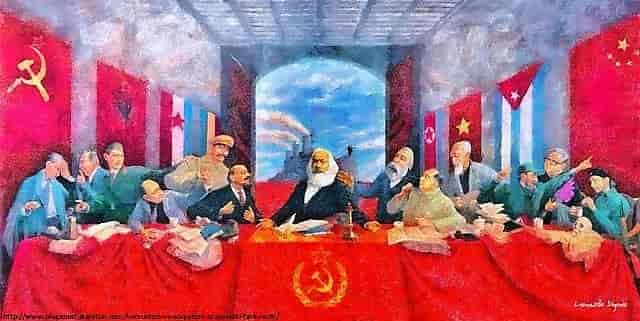
Key Principles of Communism: Equality, Ownership, and the State
Like every worldview, this system we call Marxism needs some principles to survive and continue. This view, which emerged in the 1800s, has also revealed its own principles over time.
The basic principles of communism are as follows:
• A classless society: It is a society where all individuals constituting the society are equal. In other words, everyone should be equal, regardless of whether they are bourgeois, rich or poor.
• Common Property: It is the principle that factories, mines or all factors of production belong to the entire society, not to individuals or companies. Meanwhile, the right to inherit will also be eliminated.
• Equal Income Distribution: It is the principle that each individual receives a share of the total income according to their own needs.
• Planned economy: It is the production, consumption and distribution carried out according to a central plan rather than supply and demand. The free market and invisible hand mechanism will be eliminated. When it comes to what is communism, this is actually one of the most important items. In this sense, what will be produced, for whom and how much will be produced will be determined by the central planning authority, not the needs in the market.
The Role of the State in Communism
• The abolition of the state: There is no place for the state in this ideology. In a classless society, the state phenomenon will disappear on its own over time. Thus, all workers will come together in the context of international solidarity and establish the power of the working class. In addition, according to them, the state protects the bourgeoisie and the boss, the capital class. For this reason, they are against it and there will be no need for this institution during their rule.
• The End of Capitalism: They believe that the capitalist system, which they claim is based on exploitation and class conflict and private property, must be eliminated. The establishment of the power they want will only be possible in this way. It is a fact for them that this system based on exploitation will not last forever.
While discussing these basic principles and views, we cannot help but mention the founders of this ideology, also known as the Marxist view. The German philosopher and economist Karl Marx and Friedrich Engels, who both lived in the 1800s and are known as the founders of communism, laid the true foundations of this system of ideas. The duo, who put forward the theory of this worldview with the “Communist Manifesto” they wrote together in 1848, left their mark on world political history that will not be erased even after centuries.
In addition, in their works, they basically stated that capitalism was gradually preparing its own end with its greed for more profit and that the socialist world order was the inevitable end. According to them, the “surplus value” produced by the working class was being unfairly taken by the insatiable bourgeoisie and the labourer was being exploited
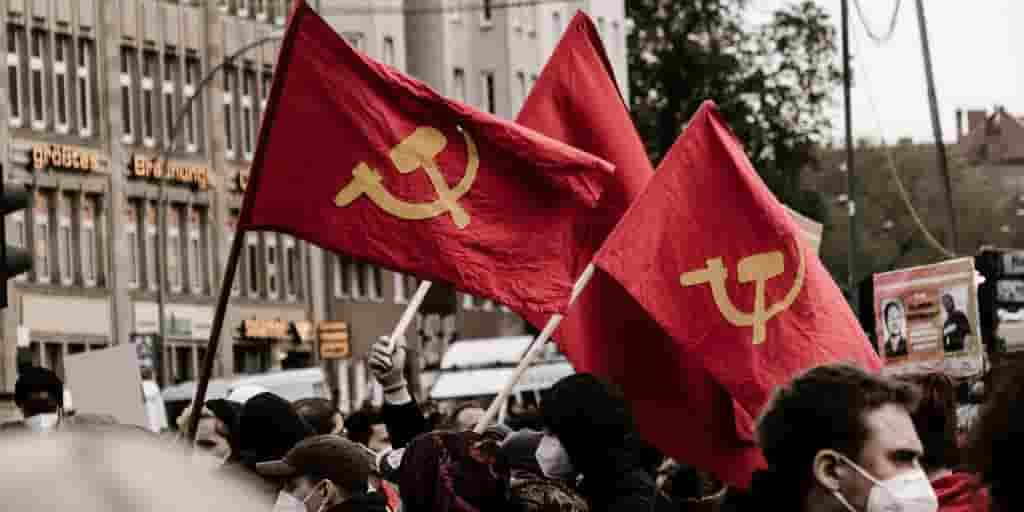
The Historical Roots of Communism: From Marx to Modern Times
The transition from an agricultural society to an industrial society was painful in many ways. As Sapiens author Noah Harari stated in his relevant work, the industrial revolution may have brought more harm than good to humanity. The only real thing here is that factories began to emerge in England at the beginning of the 18th century with the invention of the steam engine and the transition to mass production. This event also brought about the emergence of a working class working in factories in masses.
In the relevant period, farmers who had previously worked in the fields began to work as factory workers in cities in new environments that were very foreign to them. When evaluating that period, we should not compare it with today. In other words, in the relevant years, a factory worker worked 16 hours a day without the right to leave. During the relevant period, the average life expectancy was considerably shortened, and dozens of work accidents and worker deaths in factories became normal every day.
As you can appreciate, in such an extremely capitalist environment, workers began to organize for their rights after a while. This is how the question of what is communism gave rise to the answer that it is the last stage of capitalism. In other words, according to the founders of the relevant ideology, by nature, man cannot continue to live in such a wild, capitalist environment and will move towards a communist revolution.
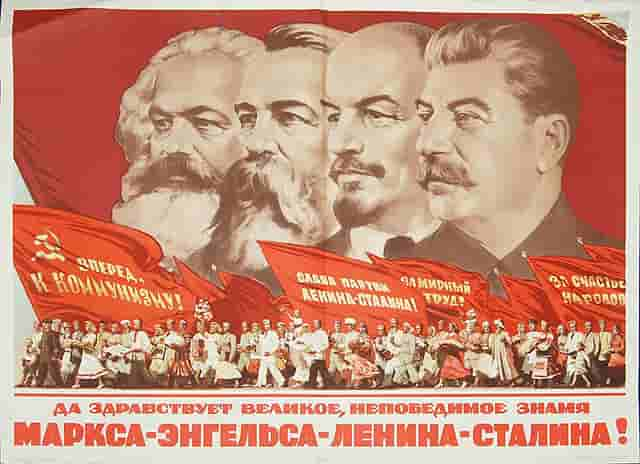
The Communist Manifesto Impact on Its Roots
After the resistance and communist manifesto in 1848, workers organized and began to seek their rights by establishing unions.
Then, this view, which was organized as an ideological system until the 1917 Russian October Bolshevik Revolution led by Vladimir Lenin, became the official ideology of a country for the first time in the relevant history. In this context, the communist regime, which became a global power during the Cold War period after World War II with Stalin, reached its peak by dominating China, Cuba, Vietnam, Korea and Eastern European countries.
This management and ideological system, which could not succeed even during its peak period, first ended with the fall of the Berlin Wall and then with the dissolution of the Union of Soviet Socialist Republics in 1991 during the Gorbachev era. The most fundamental reasons for this collapse are shown as equal income being contrary to people’s individual competition and desire to earn more and the lack of dynamism of the market economy in central planning.
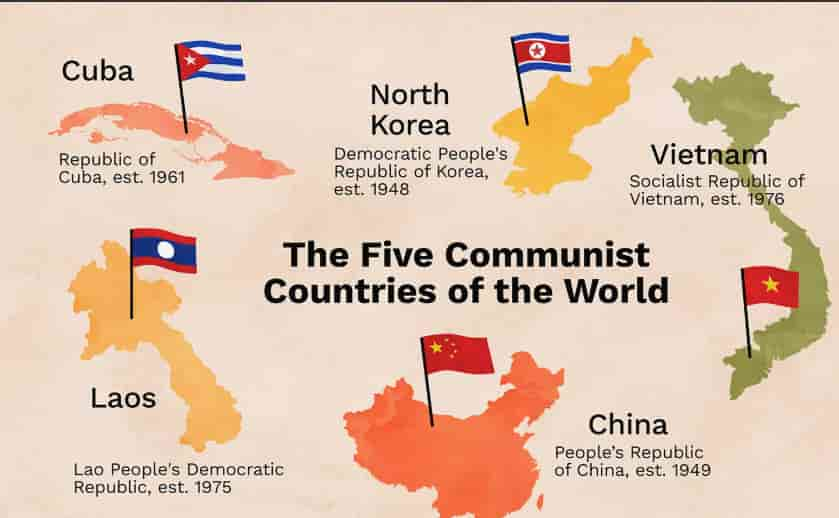
The Basic Differences between Capitalism and Communism
These two systems are almost completely opposite to each other. While capitalism believes in liberal democracy and allows freedom in terms of private property, income distribution and individual freedoms, the communist regime is much stricter in these matters. First of all, we should say that capitalism is based on the “more profit” instinct of human nature. In other words, it puts competition and more profit instincts at its core. However, in the communist system, there is equal income and social welfare is prioritized rather than profit.
Now we will list the differences between the two worldviews under headings.
– The issue of Private Property: While there is private property and inheritance right in capitalism, these two concepts do not exist in communist ideology. In other words, individuals cannot own companies, lands and other means of production; common ownership is essential.
– Economic Planning and Income Distribution: There is no planning in capitalism. As Adam Smith stated in his book The Wealth of Nations, if each individual strives to maximize his own welfare, the welfare of the society will increase automatically. The market mechanism will also determine prices and wages according to supply and demand. On the other hand, in the Marxist view, production is carried out with central planning and income is distributed equally.
– Individual Freedoms and Society: A completely liberal wind blows in the capitalist system. The individual has all freedoms. The structure that acts on the basis of “let them do it” naturally divides society into classes as the rich and the poor. On the other hand, in Marxism, the benefit of the society often overtakes and restricts the freedom of the individual. In addition, there is no rich or poor class in society socially. All individuals live in a classless society.
What are the Differences from Socialism?
The differences between communism and capitalism can be listed in every field and subject. It is possible to approach these differences, the main topics of which we have given here, as opposites in every subject. There is no subject that these two ideologies address in common. In fact, if you ask what is communism, the answer that it is the exact opposite of capitalism will not be a wrong perspective.
This Marxist ideology, which we have explained the difference from capitalism, should also be briefly emphasized as the difference between communism and socialism. Socialism can actually be seen as a complete bridge from capitalism to Marxism. In other words, socialism resembles a more mixed economic system. In socialism, there is room for individual property and the state, albeit limited. At this point, the Socialist order, which is clearly a more moderate form of government, values personal freedoms by giving importance to the continuity of society and the state.
In this way, it also contributes to the development of individual and international competition. In this sense, it is clear that it is a more reasonable and acceptable management system.
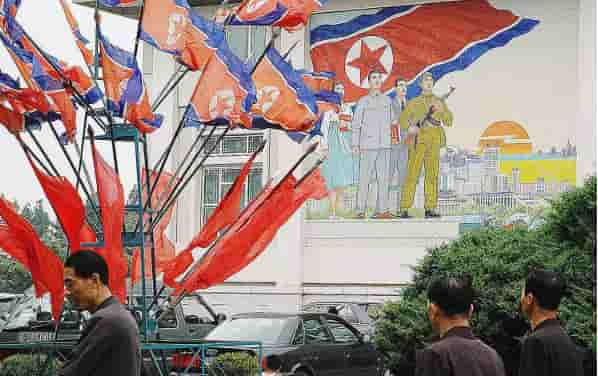
Communism in Practice: Criticisms, Successes and Failures!
It is obvious that as you can appreciate, there is a “homo economicus” inside a person who acts with the profit motive and desire to compete. This motive and “homo economicus” have not been addressed sufficiently in Marxist view. Let’s not forget that global competition and the profit motive have been the pioneers in the success of the capitalist system in the last century. Thanks to this success, while humanity has increased its welfare with phenomena such as artificial intelligence and branding, capitalist system has made biochemical revolutions with smartphones and artificial intelligence-based technology.
When asked what is Communism or Socialism, these modern inventions of capitalism and the discovery of productive artificial intelligence will be the complete answer. So, if capitalism had collapsed in 1991, would these inventions have emerged in a centrally planned system today?
The most fundamental criticisms of communism:
– Restriction of individual freedoms: Communist regimes that prioritized the interests of society eventually produced autocratic leaders like Stalin, and productive individual initiatives completely ended. People who knew they would earn the same income even if they worked harder eventually stopped working.
– Contradictions between Theory and Practice: The goal of an equal, moneyless and classless society really sounds good in theory. However, in practice, these promises have never been realized, and Marxism has never achieved its goal.
– Intoxication with Power and Violations of Human Rights: Over time, communist countries have not only restricted individual rights as a result of their leaders’ intoxication with power, but have also violated human rights. It is estimated that one hundred million people died in China and Russia.
– The Superiority of Globalism and Capitalism: Over time, individual competition has brought technological developments and artificial intelligence revolutions. This, together with liberal democracy, ensured the victory of capitalism.
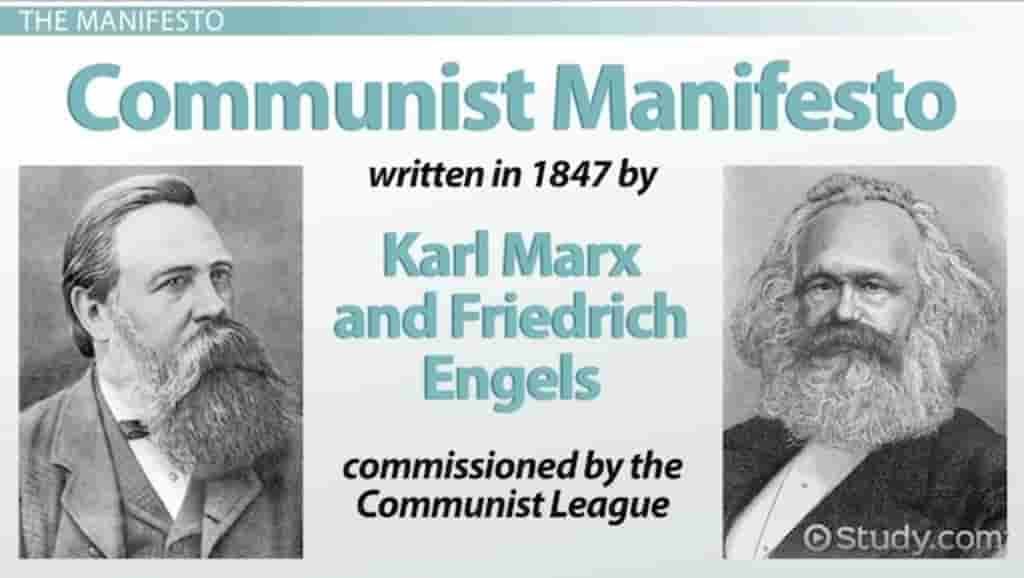
The Legacy of Communism: Lessons and Generative AI Era!
So much so that today there is neither a completely capitalist nor a communist country in the world. An economic system that we generally call a mixed economy prevails all over the world. Despite this, there are countries such as China, Cuba and North Korea that call themselves communist.
On the other hand, in countries such as America, England and France that define themselves as capitalist, there are practices such as labour unions, minimum wage and health systems that are actually products of communist regimes. We owe such practices to Marxism and to countries that implemented communism in the past. If it were not for them, perhaps many of the rights that workers and white-collar employees have today would not have been granted.
It is very clear that it is not possible for this economic system to survive today. On the other hand, it is a known fact that the capitalist system constantly causes crises and is bringing about the end of humanity and the environment with an unstoppable profit motive.
What needs to be done at this point is to take the positive aspects of both communism and capitalism that are compatible with human nature and structure and produce a new hybrid system that is compatible with both the ideas of Generation Z and the artificial intelligence revolution. If we can achieve this, we will have saved the next century. If we cannot, it is a fact that the future of the world and humanity is not very bright.
